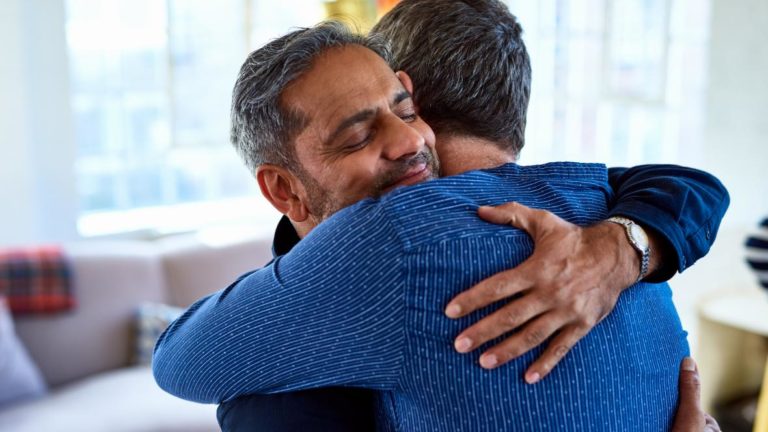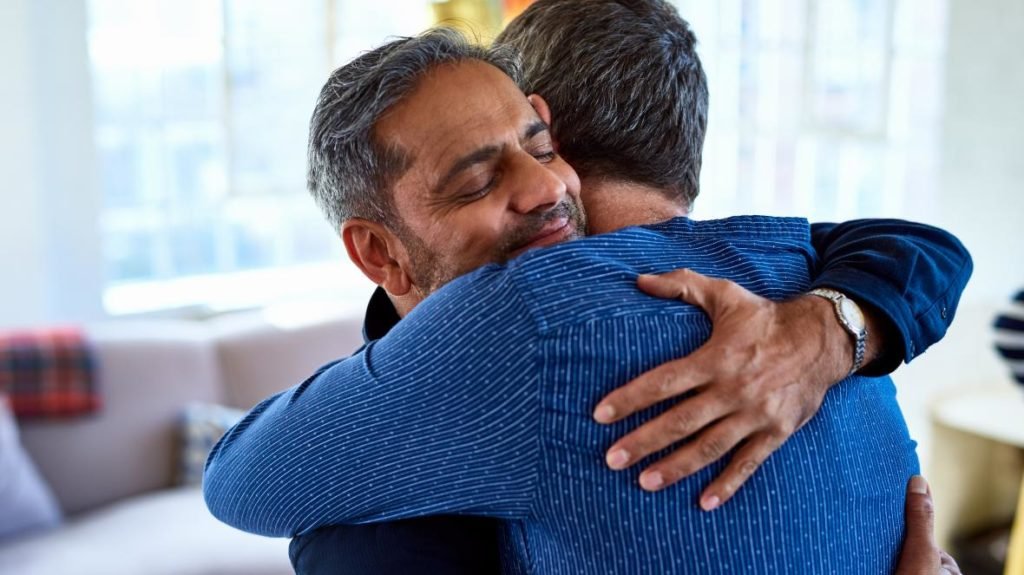
Linda Matisoff waited the days until she could embrace her 5-year-old granddaughter, Laila, again after a year of being COVID-aware.
Hugs Can Help In Fighting Stress And Blood Pressure
It was finally time in March, two weeks after receiving her second dosage of the vaccination.

They were approaching Matisoff, who resides in Plano, Texas. They had met on FaceTime and had seen each other in person six feet apart.
But the hug was the first physical contact they’d had in a year. It was a nice, warm sensation.
It’s more than simply a sensation. Hugs may be beneficial to people, both physically and mentally, and with life returning to normal, health professionals are relieved.
It’s perfectly fine to embrace again, and it’s critical to do so, according to Dr. Cross, who is a pediatrician at Children’s Hospital L.A. It can help people feel connected, and several studies have shown that feeling connected improves health. It lowers tension, blood pressure, and anxiety.
Embraces, according to Cross, are part of the power of touch that lasts a lifetime, from preterm newborns who respond better when held to the stress-relieving benefits of regular hugs for adults.
She claims that when people hold someone they care about, they get a sense of peaceful release. It’s all beneficial to them.
The advantages have been documented in a variety of methods. One research found that women who had physical touch with their spouses coped better with stress, while another found that hugs reduced blood pressure in women.
Sheldon Cohen, a psychology professor at Carnegie Mellon University in Pittsburgh, performed a 2015 study in which participants were exposed to the cold virus and then compared to those who did not get repeated hugs in the two weeks before being exposed to the virus. Even when participants reported tension in their lives, which is known to impair the immune system, the huggers were less likely to get sick.
Cohen stated that the more hugs they received, the less likely they were to become ill. It seems to give some kind of disease resistance. Hugs were even softening the blows of battle.
According to Michael Murphy, an assistant professor of psychology at Texas Tech University in Lubbock who studies the impacts of hugs, scientists are trying to find out why hugs and other types of supportive contact may make such a difference.
He claims that there is still a lot they don’t know. However, it appears to stimulate the production of hormones that protect the body from the negative consequences of stress. Supportive touch may also serve as a simple but powerful reminder that there are individuals in their surroundings who love and care for them.
Hugs didn’t completely disappear throughout the pandemic. People who were confined together were free to embrace as much as they wished. A hugless year, on the other hand, created a significant gap for individuals who were isolated or separated from some of the persons they wished to hug.
Isolation, loneliness, and a general lack of social support can all be damaging to one’s health, according to Murphy. They can put people in danger for things like heart disease, substance misuse, and even suicide.
In normal times, kids get a lot of hugs from a lot of people, according to Cross. She believes they noticed the change.
All of this adds up to a positive development for hugging. There are, however, certain drawbacks.
According to Murphy, all of the benefits of hugs are predicated on voluntary hugs. Many individuals have told him how happy they are to be embracing again. However, he has also heard from folks who are still apprehensive about being touched. It is always vital to respect the limits of others.
While Cross is adamantly pro-hugging for vaccinated individuals, she also encourages common sense, such as turning their heads to prevent exchanging breaths.
She stated that, in addition to COVID, there are other diseases out there. Individuals can still infect others with the flu. She also stated that if people are ill, they should not go around infecting others.